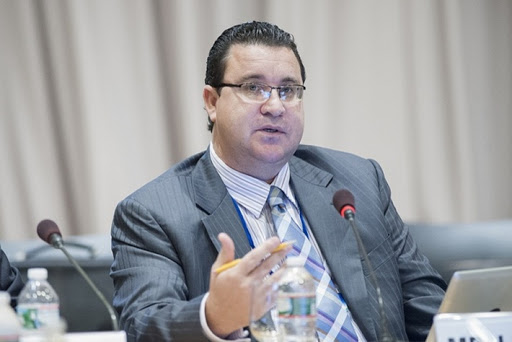Mr. Pierre Frank Laporte, Country Director of the World Bank has explained why the Bretton Woods institution agreed to support the new Development Bank Ghana (DBG).
It is basically because government agreed to conditions spelled out in ensuring the bank becomes successful.
This comes on the back of concerns raised about the rationale for the World Bank providing US$200million to support government establish a new development bank.
Initially, Mr. Laporte admitted that the World Bank had such concerns regarding establishment of the new development bank. But given assurance by government to satisfy certain conditions spelt out by the Bank to ensure that things are done differently and properly, it yielded to the request.
The European Investment Bank also recently approved €170million for the new development bank and Mr. LaPorte believes it is a good sign that demonstrates the need to do something to help the financial sector and private sector in Ghana.
The new development bank will help address the age-old problem of access to long-term financing in the country. Access to finance is one of the biggest constraints to development and poverty-reduction in Africa, and in Ghana; it is almost impossible to get long-term financing for private investment.
After the much-publicised failure of many national development banks in the 1970s and 1980s, the future of this type of development finance was in question (World Bank, 1989).
A government-owned development finance institution can play a useful complementary role to fill existing gaps in the provision of long-term finance, especially in infrastructure, housing, agriculture and the SME segment.
The development bank is expected primarily to fill in the gaps in the supply of financial services that are not normally provided by the universal banking institutions. Good corporate governance practices are paramount for the survival and sustainability of a development bank in Ghana.
BoG’s abstinence from Parliamentary Committee petition in order
Bank of Ghana (BoG) Governor, Dr. Ernest Addison has indicated that attempts by some shareholders and owners of collapsed financial institutions to frustrate the legal processes from demanding accountability will not wash.
This is because the central bank and receivers of the collapsed financial institutions are bent on recouping the GH¢19billion taxpayers’ money spent on settling depositors after the financial sector clean-up that saw nine banks and 411 Specialised Deposit-Taking Institutions (SDIs) go under.
Dr. Addison made the declaration in view of the recent decision by the BoG to abstain from a Parliamentary Committee petition by some shareholders of defunct UT Bank and uniBank.
It is to ensure that the legal processes ongoing is not further delayed, Governor Addison stated at a Ghana Chamber of Commerce and Industries Business Forum this week.
Already, he indicated, some of the shareholders have slowed the ongoing legal processes with many counter-suits and the parliamentary petition is viewed as intended to further drag matters.
Dr. Addison recalled that in September, 2018; the 7th Parliament undertook a formal inquiry into the financial sector clean-up, the key factors that led to it, and the manner in which it was carried out.
He observed that the Bank of Ghana cooperated fully with the committee and provided all the necessary information. The Central Bank hoped the committee would have made available its report to Parliament, and the public after deliberations but that is yet to happen.
The public has therefore been urged to support the receivers to retrieve all properties of the defunct financial firms, as well as, prosecute the shareholders to recover the over-GH¢19billion bailout fund used to settle depositors.
The monies need to retrieved and reinjected into stimulating the economy. That much we fully concur with and are also encouraged by the resolve of the BoG to recoup the GH₵19 billion spent on the entire exercise.
We are also satisfied with the reasons advanced by the Central Bank to abstain from the petition made by UT and Unibank since, in the view of the Bank, its just another time-wasting mechanism as Parliament has fully conducted its probe of the circumstances that lead to the clean-up exercise.
What is imperative now is how the colossal amount used to prosecute the exercise will be retrieved and injected back into the economy to assist the economic recovery process.
Also, it is incumbent that the Finance Committee of Parliament make public its investigative report on the banking sector clean-up exercise which was conducted in 2018.










